Everyone will have to ratchet down their standard of living by over 75%...
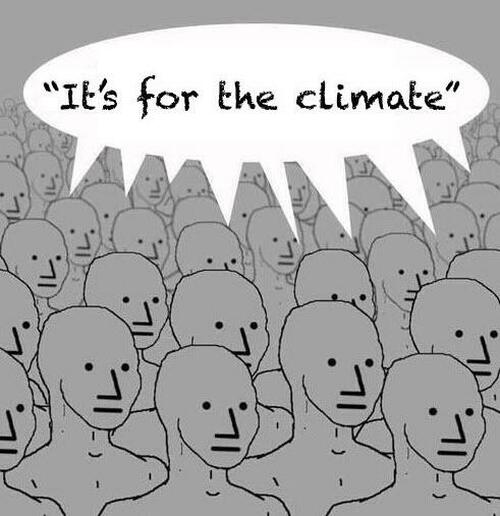
Throughout the developed world, per capita carbon output ranges from 4.46 (France) to Canada being the highest at 15.43.

The article talks about the personal challenges around living an ultra-low carbon lifestyle. According to the piece, 2 tonnes/year is also about half the output of a single gas powered car in the US, so the first step for any Americans (or Canadians) wanting to do this, they would have to start by ditching their cars.
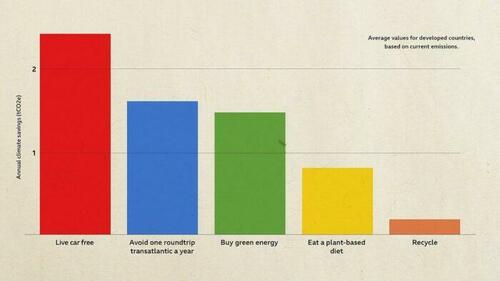
Other behaviours which move the needle would be: eating a plant based diet, buying green energy and forgoing one transatlantic round-trip per year.
In terms of what level of personal CO2 emissions gets the job done “for the climate”, estimates vary. While the 2 tonne number was somewhat arbitrary, there are other climate focused think tanks that feel the number has to be 1.4 tonnes of C02 per person by 2040 and 0.7 by 2050.
The Fallacy of per-capita output
Going back to Canada’s “excessive” carbon footprint – if we look at a metric that really means anything – total CO2 output – Canada is basically a rounding error to the world’s largest emitter, China.
At an average annual temperature at -4 to -5c celsius, Canada is also the coldest G7 nation. So perhaps we can forgive the Canucks for not wanting to freeze to death – even if it means emitting Co2 for heat. Also worth noting that far more humans are killed each year from being cold (17.7 million per year, on average) than from being too warm (2.2 million per year), roughly 8X.
Here’s the thing: everybody has to comply
While the overall timbre of the piece lauds the story’s protagonist (a communications officer at a climate non-profit) over her decision to make this lifestyle choice, sprinkled throughout are casual, back-handed references at where all this is going:
The ultra-low carbon lifestyle isn’t just for the eco-minded, it has to be for everybody. Or it isn’t going to work (“work” being defined as controlling the planet’s climate decades out).
“what do truly low-carbon lifestyles look like – and can they really be achieved by personal choice alone?“ the article laments.
Well if the answer is “no” then that means the ultra-low CO2 lifestyle has to be for everybody. How we do that is a matter of “both individual and systems change”. By systems change is meant that
“with the right policies, infrastructure and technology in place to enable changes to our lifestyles and behaviour, we can reduce overall greenhouse gas emissions substantially by 2050…
In richer countries, this means moving towards a far lower carbon lifestyle for most people. But the changes to get there aren’t necessarily painful or even negative. For example, research has shown that good public services enable higher wellbeing at lower energy use.”
If you read between the lines we see the implications of this. It basically means that an ultra-low carbon lifestyle has to be brought about through systemic change, government policy and massively expanded public services – or said differently, increasing dependence on The State.
Private infrastructure – like cars – will have to become a thing of the past:
One major change would be to change how we move around. Akenji envisions a combination of public transport alongside micro-mobility systems (such as electric scooters and drones) which make it efficient and effective for people to reach it. Private cars, with their huge emissions and often empty seats, would largely be a thing of the past, he says, and car parks converted to green public spaces where people go to play, relax or do exercise.
The Climate Cult-ist ‘s Dilemma
We live in a world where many people believe many different things, but nowhere else do we find the kind of mandatory buy-in required as with the so-called climate crisis. Fortunately we’re hearing from an increasing number of scientists that there is no crisis, and whose voices are getting louder even in the face of corporate media “fact checking” and other headwinds of narrative control.
Climate crisis or not, I personally think decarbonization will happen anyway if for no other reason than that fossil fuel supplies are finite. With rational energy policies, including nuclear, natural gas and hybrid EVs (as opposed to full EV), we could significantly ratchet down CO2 emissions while still providing increased energy inputs to a world hungry for higher living standards.
Doomberg frequently quips that one’s standard of living can be measured by how much energy one can afford to waste. Somewhat glib perhaps, but he uses it to hammer home the point that energy is life (also his phrase, see this Tweet thread that goes deeper on why).
1/ Since disorder is spontaneous, the human endeavor is a constant, unrelenting struggle against the forces of entropy. We are a highly ordered species – a true miracle of the universe. Beating back entropy requires energy. Ergo, energy is life.
— Doomberg (@DoombergT) June 18, 2022
The reality is there is no viable path forward that makes reduced energy usage and standard of living reductions a requirement, let alone mandatory.
Doing so means telling the middle class to own nothing and eat bugs, while the elites parade through the city in lengthy motorcades on their way to the airport to wing it to Davos in their private jets. It means telling third-world nations to remain mired in poverty. And it means forcing the Chinese to stop building all those coal-fired plants and to keep the 600 million subjects there who are still living in extreme poverty, poor.
Via Forbes
Good luck with that.
The simple reality is that any desired policy or collective goal that requires 100% compliance from a population (let alone the entire world) will simply not occur. Even if 100% of the world’s population believed in anthropogenic global warming, you still wouldn’t achieve consensus on the forecasts, the models or how to implement a response.
For people who believe the climate emergency narrative (and make no mistake, it is a belief, like any other), the reality of this induces a type of eco-anxiety. Climate researchers and activists are sensitive to this dilemma and have created a word for it, “solastalgia”,
“the condition of feeling lonely, insecure and powerless because of the intense changes in one’s immediate environment, which can be caused by the acute impacts (e.g., floods and wildfires) of climate change, the chronic degradation of places caused by climate change (e.g., sea level rise) (Galway, Beery, Jones-Casey, & Tasala, 2019) or by human activity (e.g. mining, deforestation) (Albrecht et al., 2007, Galway et al., 2019). Solastalgia is not nostalgia, because it is not a longing for a place from which one has moved, rather it is suffering from change and lack of control over it (Albrecht et al., 2007).”
If that weren’t bad enough, they also face cognitive dissonance over their own carbon footprints – not all, even many, of those involved in the fight for climate change are living ultra-low carbon lifestyles themselves, and that causes them eco-guilt. In this widely cited paper on the topic, 17 respondents were interviewed about their coping mechanisms around ‘the emerging “psychoterratic” syndromes such as eco-anxiety, eco-guilt, and eco-grief”, they were:
They reported feelings of helplessness, meaninglessness, that we’re all going to die, guilt over travel, guilt over their own carbon footprints, conflict with family over eco-awareness, the list goes on, but widely summed up as
Prophetic individual responsibility and Self-criticism, self- examination, self-blame… Prophetic individual responsibility included the participants’ sudden recognition of humanity’s or their own environmental impact, which was often described as an overwhelming burden. We called it prophetic because the participants reported that they had realized they knew more about the topic than other people, which made them feel responsible for enlightening others or evoked a desire to make others aware of the damage or impending disaster because otherwise there would be no change.
At their core, the anxieties faced by these people are indicative of the human condition itself: we all have unique insights into the world – and if we’re introspective and genuinely curious – we become attuned to system problems that we feel need addressing. All Bitcoiners understand the “Fix the Money / Fix the World” maxim. But the approach to orange-pilling people is markedly different from eco-sermonizing.
But beneath even that, we all face impermanence, uncertainty and even mortality. Part of our psychological process of individuation is to find meaning and purpose within it all. It’s called life. Only for most of us, while seeing that our emotional support structures incorporate community, family and purpose, we realize that at our core we are, in our earthly incarnations – here alone, as individual souls. We must face the world as it is, and we each have a personal responsibility to grow into it under our own devices.
It is mainly the eco-anxious, the collectivists and Marxists who believe it critical, even necessary that the entire world must conform to the same worldview “in order to save humanity”. It’s textbook messiah complex and narcissism (see Deconstructing Wokethink)
Weaponizing “eco-guilt” (a.k.a “Rigging the game”)
This eco-anxiety is so acute that many think it noble and just that the structure of society itself must be altered to fit the worldview. There are academic papers on using eco-guilt to motivate eco-friendly behaviours (“eco-shaming”). In The Bitcoin Capitalist we’ve covered the UK’s “Nudge Units” which use social media influence operations to condition behaviors.
There is even one from Ross Mittiga, a professor of Political Theory at the Catholic University of Chile, and a democratic socialist (of course) who argues for the political legitimacy of authoritarianism to the point where political candidates must “pass a climate litmus test” before being permitted to run for office, and even overturning previous democratically driven policies if they are deemed harmful to the climate:
“Governments might also justifiably limit certain democratic institutions and processes to the extent these bear on the promulgation or implementation of environmental policy. This could involve imposing a climate litmus-test on those who seek public office, disqualifying anyone who has significant (relational or financial) ties to climate-harming industries or a history of climate denialism. More strongly, governments may establish institutions capable of overturning previous democratic decisions (expressed, for example, in popu- lar referenda or plebiscites) against the implementation of carbon taxes or other necessary climate policies.”
In the future it’ll be a lot more expensive to be free
This drumbeat for climate collectivism is going to get worse before it gets better. While it’s encouraging to see more reality being injected into the conversation – and eco-messiahs increasingly discrediting themselves through their lifestyles of conspicuous consumption – large swaths of the population are buying this story hook-line-and-sinker, and as Late Stage Globalism enters into its endgame, we expect policy makers to become more desperate and draconian.
CBDC’s will probably come out of the gate as personal carbon quota systems and mass adoption will be driven through UBI delivered on the rails of social credit systems and digital ID.
COVID was supposed to be a godsend for those seeking to create precedent for unlimited stimulus, quasi-UBI and prototypical social credit mechanisms through vaccine passports et al. Fortunately it was all too much, too soon and it appears as though the opposite may be happening.
Where another twenty years of operant conditioning and creeping totalitarianism may have provided the perfect setup for an enduring, technocratic authoritarianism, the widespread policy failures created a larger swath of population who is now wary and suspicious of the next “existential crisis”.
The 37 Trillion in new M2 money blowing out the currency system, the central banks forcing themselves into a corner on interest rates vs inflation, the new pandemic of “sudden and unexpected” excess mortality, and now various Covid rockstars trying to distance themselves from their role in it all, it certainly looks as though the globalist elite of hyper-Liberalism have overplayed their hand.
That won’t preclude them from trying, however, and there are still many who think #CovidsNotOver, want to #BringBackMasks who will be all too eager to have their lives mediated and gamified via their smartphones and dramatically ratchet down their lifestyles in order to “save the climate”.
Let them.
But you don’t have to go along with it, but it will become more expensive to be free. Wealth taxes, windfall taxes, heavily regulated chokepoints between the rapidly deteriorating “fiat world” and the coming “anti-fiat” economy will require being a net producer, owning hard assets across multiple jurisdictions and networks, and garnering multiple income streams. The middle class is being demolished, and with calls to reduce living standards by over 75% (cutting personal emissions from an average if 8 tonnes per capita to 1.5 and then 0.7), it looks intentional.
“In the future, there will be only one occupation: managing one’s wealth. And most people are going to be unemployed”.
As I wrote in a recent issue of the premium letter:
The CBDCs will roll out, and intended or not, become full-fledged China-style social credit systems, from which “the smart money” flees into Bitcoin and other hard assets to preserve its wealth.
This leads to “The Great Bifurcation” scenario I’ve written about at length.
It’s where Neo-serfs who rely on The State for their economic survival live lives of quiet desperation and servitude, their carbon footprints metered, their behaviours monitored, nudged and shaped; their destinies largely out of their own hands. Life is something that just happens to them, punctuated by episodes of “gaming the algo” to score additional privileges or avoid punishment.
Marbled throughout this world would be enclaves, and networks of sovereign individuals and micro-states for whom life is a futuristic extrapolation of hyper-capitalism and mobility. This is the Sovereign Individual thesis meeting The Network State, writ large.
Become a sovereign individual in whatever manner suits you: own gold, stack sats, have a Plan B, work for yourself, not somebody else and for God’s sake, turn off the TV and stop subjecting yourself to the corporate media. Connect with like minded individuals and form both virtual and real communities and networks.
The defining tension of Late Stage Globalism will not be between “left” and “right” but between sovereign individuals and collectivists, decentralization vs centralization.
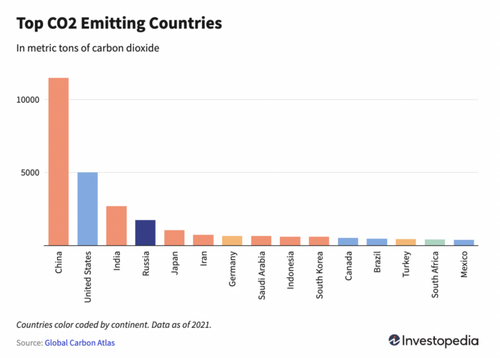
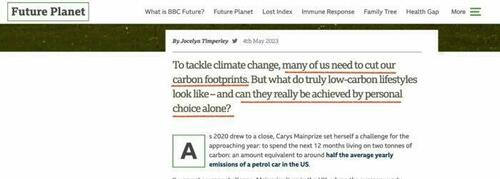
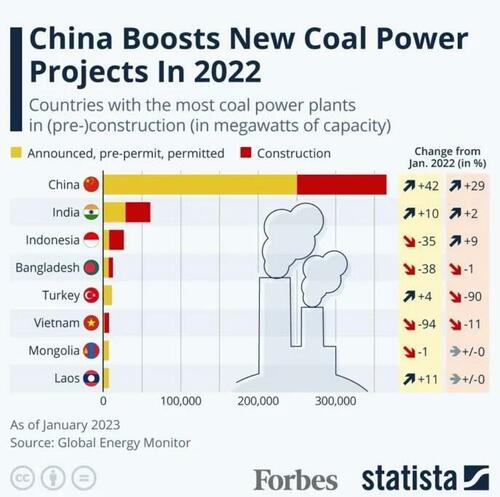
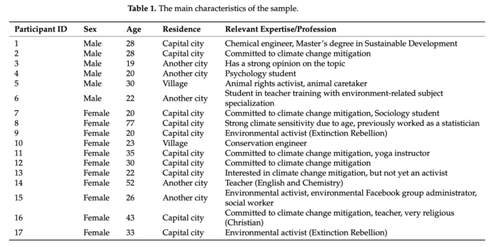
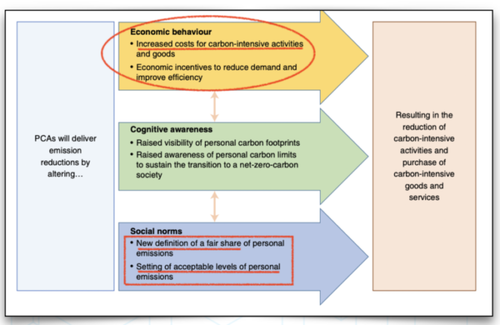
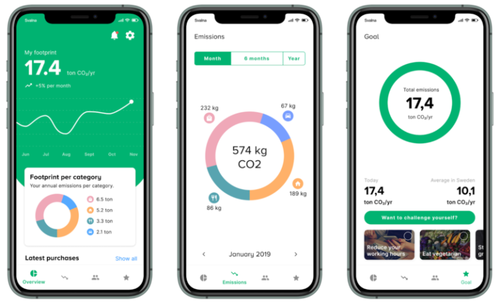
No comments:
Post a Comment